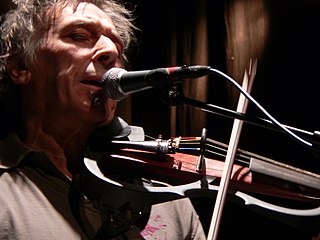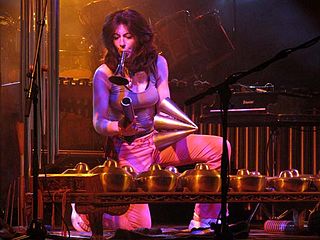A Quote by Richard de Bury
Books appear to be the most immediate instruments of speculative delight.
Quote Topics
Related Quotes
In history, in most cultures, and at most points in time, if you want to find the most advanced technologies, you can look principally in two places. One is weapons and the other is musical instruments. My hypothesis is that instruments are usually ahead of weapons. In fact, I think you can find many examples of instruments being predecessors of weapons and very few in the reverse.
Maybe all wondrous books appear in our lives the way Milo’s tollbooth appears, an inexplicable gift, cast up by some curious chance that comes to feel, after we have finished and fallen in love with the book, like the workings of a secret purpose. Of all the enchantments of beloved books the most mysterious-the most phantasmal-is the way they always seem to come our way precisely when we need them.
At that time, 73 and 74, I became aware that there were a number of us making instruments. Max Eastley was a good friend and he was making instruments, Paul Burwell and I were making instruments, Evan Parker was making instruments, and we knew Hugh Davies, who was a real pioneer of these amplified instruments.
Not only are we not using any programmed loops or computers onstage, we're also improvising with our instruments. We're playing our instruments probably more so than most people that I see play their instruments. I think we all sort of strive for that - we all want magical things to happen onstage. We don't say "mistakes" in this band, we call them "highlights."
Freedom of Will-that is the expression for the complex state of delight of the person exercising volition, who commands and at the same time identifies himself with the executor of the order-who, as such, enjoys also the triumph over obstacles, but thinks within himself that it was really his own will that overcame them. In this way the person exercising volition adds the feelings of delight of his successful executive instruments, the useful underwills or under-souls-indeed, our body is but a social structure composed of many souls-to his feelings of delight as commander.
Reading was only part of the thrill that a book represented. I got a dizzy pleasure from the weight and feel of a new book in my hand, a sensual delight from the smell and crispness of the pages. I loved the smoothness and bright colors of their jackets. For me, a stacked, unread pyramid of books was one of the sexiest architectural designs there was, because what I loved most about books was their promise, the anticipation of what lay between the covers, waiting to be found.






































